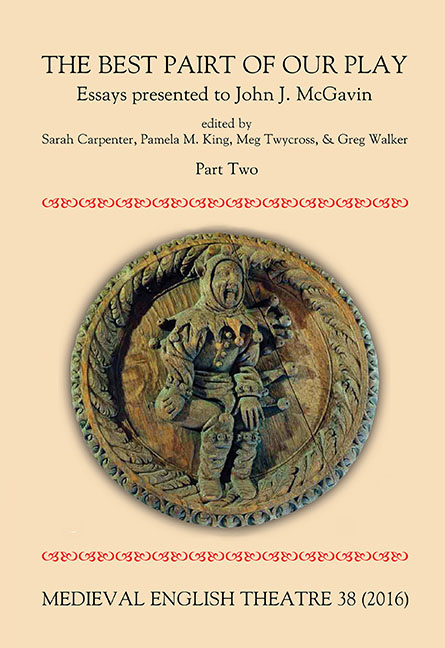 Medieval English Theatre 38
Medieval English Theatre 38 Published online by Cambridge University Press: 20 April 2017
The survival of the ancient English coronation ceremony is surprising. The establishment of monarchical supremacy following England's break with Rome, together with religious reformers’ critical scrutiny of ceremony throughout the sixteenth century, could have threatened the Latin ritual, rooted in Anglo-Saxon notions of the election of a king and his transformation into a sacred person with priestly powers — a persona mixta. But the coronations of all the Tudor monarchs, from Henry VII to Elizabeth, remained largely unchanged. And, in 1603, when James VI of Scotland was crowned James I of England, following ceremonial precedent was a way of emphasizing James's legitimacy (despite being a Scot) and claiming continuity with the past. Many of the verses and speeches written in celebration of James I's accession depict him as a new star — a natural successor — while also alluding to the powers of the oil with which his body would be anointed in the coronation ceremony, following the precedent of English kings. The Recorder of London Richard Martin's welcoming ‘Oration’ to James, for example, describes him as the ‘bright starre of the North’ while Henry Petowe in England's Caesar refers to him as God's ‘anoynted derest loue’. Shakespeare probably wrote his sonnet 107, ‘Not mine own fears …’, in the year of James's accession, and it certainly alludes to both Elizabeth and James:
The mortal moon hath her eclipse endur'd And the sad augurs mock their own presage; Incertainties now crown themselves assur'd And peace proclaims olives of endless age. Now with the drops of this most balmy time My love looks fresh, and Death to me subscribes …
The ‘mortal moon’ (Elizabeth) has been eclipsed, and the coronation and anointing of a new king are invoked by ‘incertainties’ being crowned and the ‘drops of this most balmy time’. Monarchical succession here is both a natural event (albeit portentous) — a moon is eclipsed and another body takes its place — and an event that is inextricably linked to crowns and oil.
To save this book to your Kindle, first ensure no-reply@cambridge.org is added to your Approved Personal Document E-mail List under your Personal Document Settings on the Manage Your Content and Devices page of your Amazon account. Then enter the ‘name’ part of your Kindle email address below. Find out more about saving to your Kindle.
Note you can select to save to either the @free.kindle.com or @kindle.com variations. ‘@free.kindle.com’ emails are free but can only be saved to your device when it is connected to wi-fi. ‘@kindle.com’ emails can be delivered even when you are not connected to wi-fi, but note that service fees apply.
Find out more about the Kindle Personal Document Service.
To save content items to your account, please confirm that you agree to abide by our usage policies. If this is the first time you use this feature, you will be asked to authorise Cambridge Core to connect with your account. Find out more about saving content to Dropbox.
To save content items to your account, please confirm that you agree to abide by our usage policies. If this is the first time you use this feature, you will be asked to authorise Cambridge Core to connect with your account. Find out more about saving content to Google Drive.